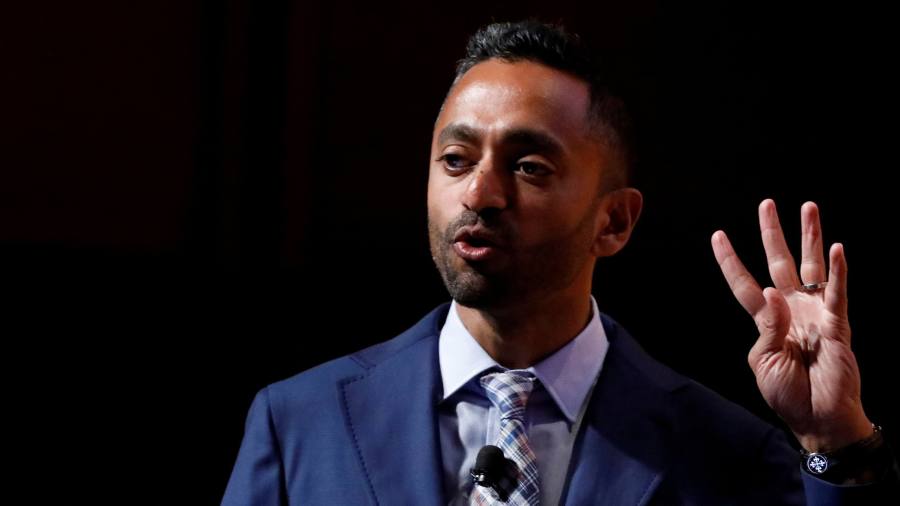
Chamath Palihapitiya, one of the big boosters of special purpose acquisition companies, has thrown in the towel, returning $1.5bn to investors after failing to find targets.
The former Facebook executive, who once labelled himself the Warren Buffett of his era, said two of his vehicles would liquidate, blaming valuations and volatility for his inability to find deals.
Spacs are publicly traded vehicles that raise cash and then seek to acquire private companies. They took off as an alternative to a traditional initial public offering but the market has plunged this year as investors shied away from riskier businesses.
“Over the past two years, we evaluated more than 100 targets and while we came close to doing a deal several times, we ultimately walked away each time for a couple of reasons,” said Palihapitiya in a regulatory filing.
Palihapitiya became the face of the boom in blank-cheque companies, partnering with British venture capitalist Ian Osborne to launch several Spacs as the market took off. He used Twitter to promote his deals and rally retail investors who saw a way to get access to public companies that often had no revenue or even a product.
Social Capital Hedosophia, which combined the name of Palihapitiya’s venture capital firm with Osborne’s own business, named after Greek gods of pleasure and wisdom, launched six Spacs in total.
Their first deal, with Richard Branson’s Virgin Galactic, set the tone for the kind of targets blank-cheque companies would pursue — early stage businesses that made grand promises to revolutionise their industry, or even the world.
Shares in the space travel venture shot up to as much as $55, allowing Branson and Palihapitiya to sell out of the company and make hundreds of millions of dollars before the stock crashed to about $5.
Other businesses that Palihapitiya helped take public, including real estate group Opendoor, Clover Health, a healthcare company, and online lender SoFi, are all trading significantly below $10, the price at which investors buy into a Spac.
“Looking back, I am proud of the companies we helped bring public,” Palihapitiya wrote in a letter filed with the Securities and Exchange Commission. “They are well positioned to bring innovation to each of their end markets over the next several years, and I am proud we were able to have played a role in each of their respective journeys.”
Palihapitiya’s deals were often followed with much bravado on Twitter where he presented himself as someone who wanted to help retail investors despite his billionaire status. He was a strong proponent of having “skin in the game” as a Spac sponsor by using his own money to set up the vehicles.
Earlier this year, the Financial Times reported that Palihapitiya had borrowed money from Credit Suisse to finance two of his signature deals — Virgin Galactic and Opendoor. When the FT had asked in 2020 whether he had taken out a loan to finance his $100mn investment in Virgin Galactic, Palihapitiya denied it was the case, writing: “That is NOT correct”.